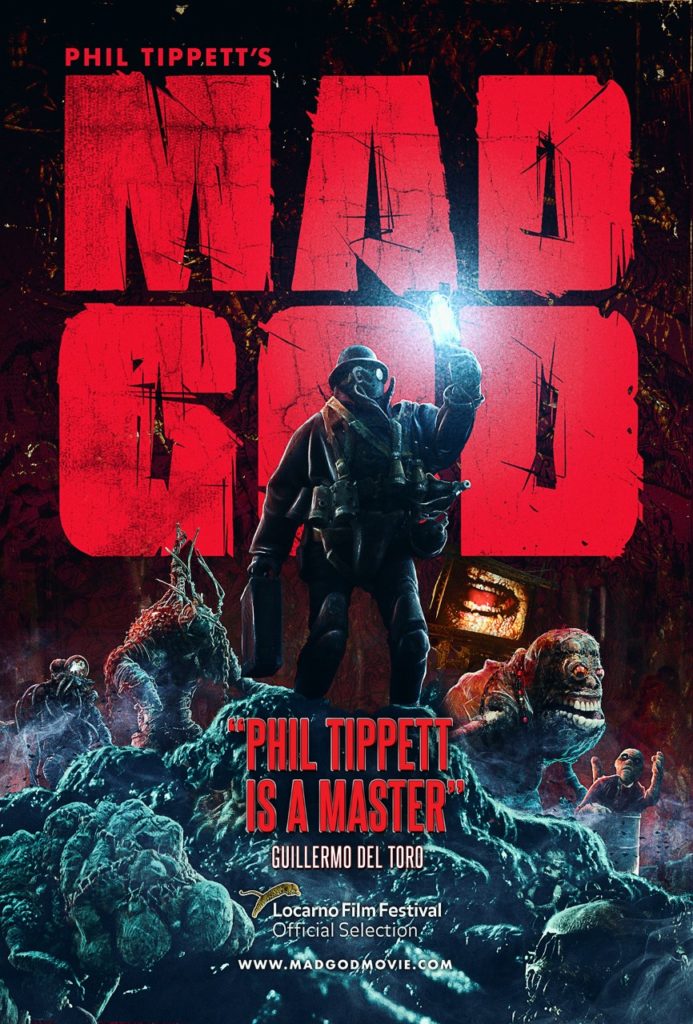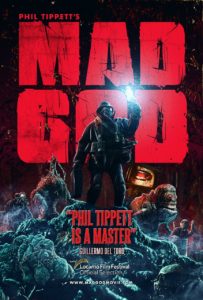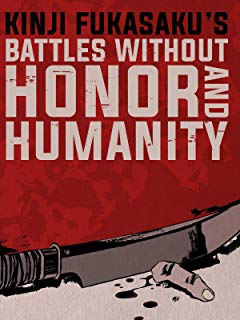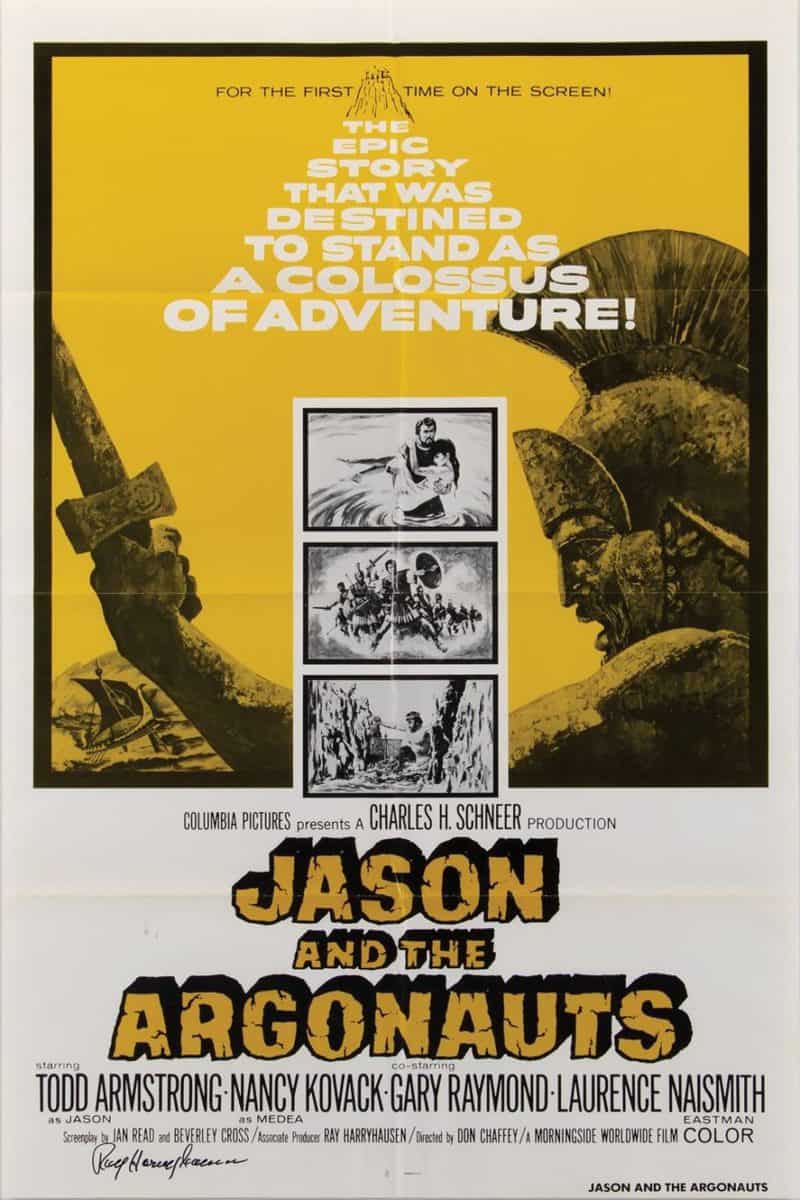
Normally the sentiment that “a good film score is one the viewer doesn’t notice” is completely wrong. But, in the case of Phil Tippett’s Mad God, it might have some merit. The film is effectively an 85-minute showcase of stop-motion talent, creating a nightmare world full of grotesque creatures and decrepit environments. It’s a visual masterpiece. With that in mind, it’s no surprise that Dan Wool’s score takes a secondary position.
In Mad God, two “Assassins” descend from the rubble of a war-torn surface world into the bowels of a hellscape. Through their journey, we witness cruel monstrosities, pseudo-World War I killing fields, and the deadly machinations of great industrial machines. It’s a world filled with the strange and the violent.
For instance, in the first of the film’s three parts an Assassin comes across a great manufacturing complex. Fibrous humanoid worker-drones amble about, crushed to death by floating rectangles and whipped into oblivion by defecating, large-testacled behemoths. A large, toothed baby, present only through an array of suspended monitors, watches over everything, gurgling unintelligible commands to its army of slaves. There’s little conventional “beauty” here, but it’s nonetheless visually enthralling. It’s surprising being so enraptured by seemingly endless cruelty and brutality – everything seems intent on violence for the sake of it. Mad God is an uncaring reality that you can’t turn away from.
I expected Wool’s score to be similarly coarse, perhaps grating drones or industrial carnage; something to keep pace with Tippett’s world. So, I was surprised to hear acoustic guitar and a music box. These open the score release, and give the impression of something gentler, more delicate, more human. Their slow pace similarly slows down our experience, turning us into observant tourists in this exhibit of the grotesque. Wool is telling us to take our time, to admire every detail of Tippett’s nasty world. Eventually, these instruments are consumed by the great maw of noise; after all, this is a nightmare world.
Surprisingly there are a couple recurring motifs throughout, the primary one often orchestrated with acoustic guitar. There’s a hopeful undercurrent in them, and they aren’t alone. Other occasional musical beams of sunshine permeate the noise and briefly illuminating the hellscape. Together, they offer a possibility of something better, that perhaps this endless cycle of death will end. Of course, it’s nothing more than hope. Eventually, the slowly grinding gear of excess consumes all (vaguely reminiscent of David Lynch and Alan Splet score for Eraserhead), devouring the world and all of its inhabitants for some unknowable purpose, perhaps suffering? That tinge of hope makes Tippett’s world even bleaker.
Candidly, this is a score that I initially dismissed while watching the film. Or perhaps it simply didn’t register, given that Mad God’s focus is on the masterful stop-motion work, which so entranced me. But the first few seconds of the score release grabbed me, and once the theme drifted in, the memories of Mad God’s mad world flooded back and my emotive response strengthened. It’s a surprisingly long release, standing at 79 minutes, particularly given the film’s 85-minute length. This begs for a rewatch, to see whether significant music was cut entirely, or if Wool scored almost the entire film but did so in a way so as to be almost unnoticeable. Either way, Wool managed the impressive feat of composing music that never draws attention from the visuals but that also stands alone as a visceral listening experience.
You can also listen to a version of this review below (or wherever you get podcasts, including Spotify and Apple Podcasts):
Editor’s Note: This score also featured in our column about the Best Film Scores of June 2022.



